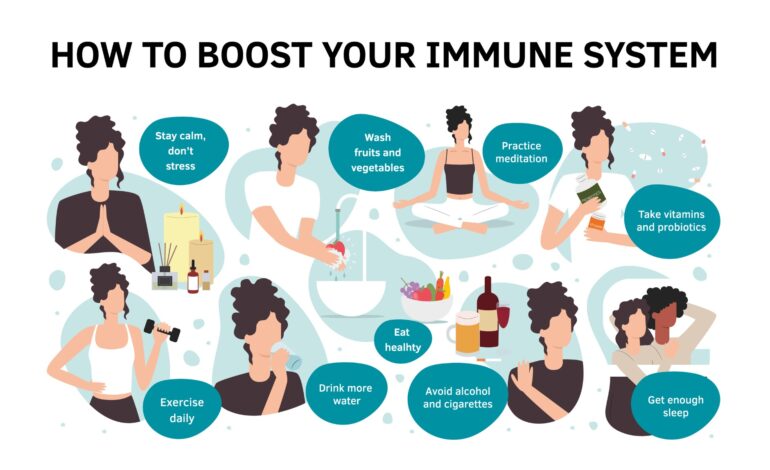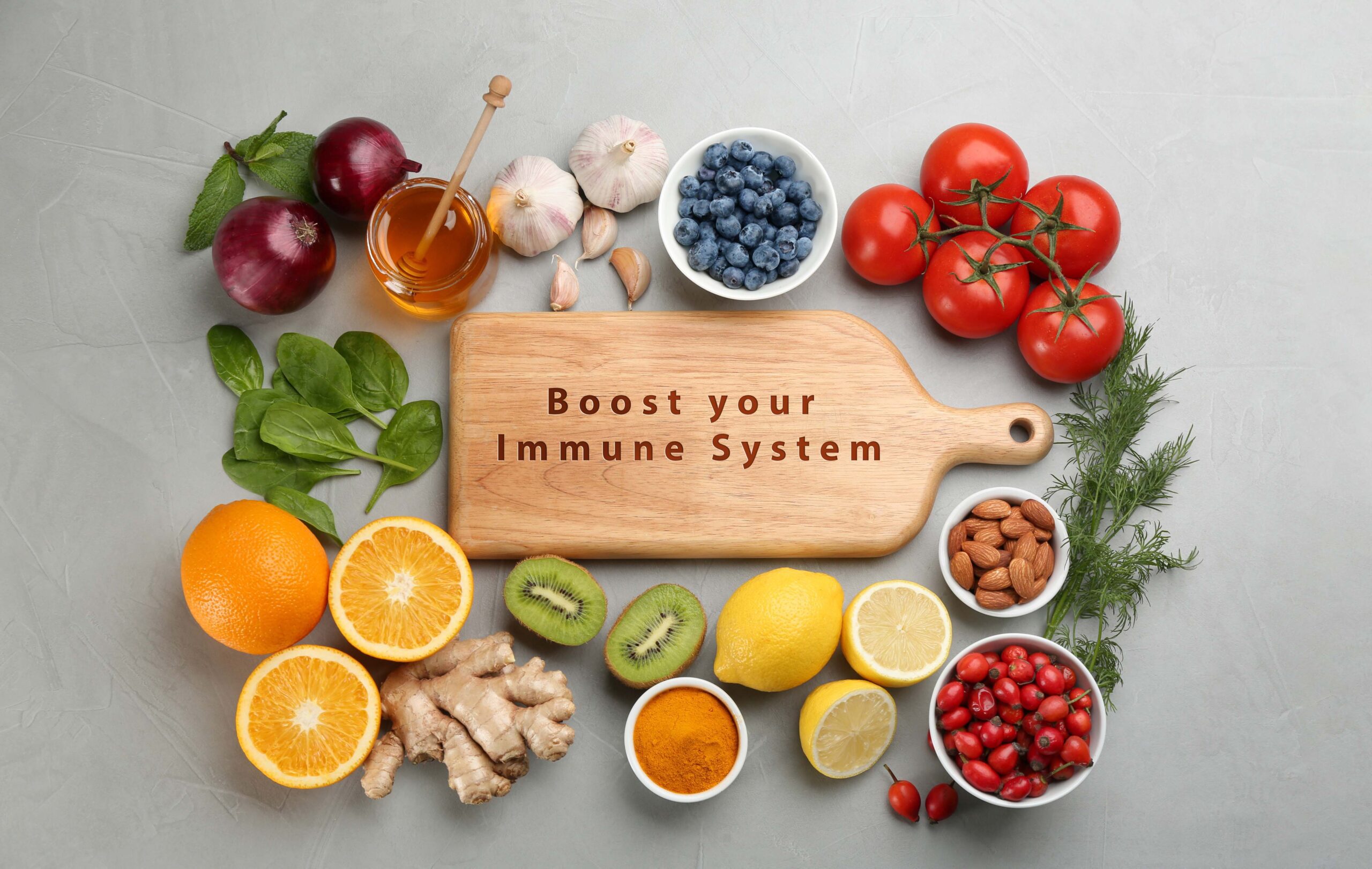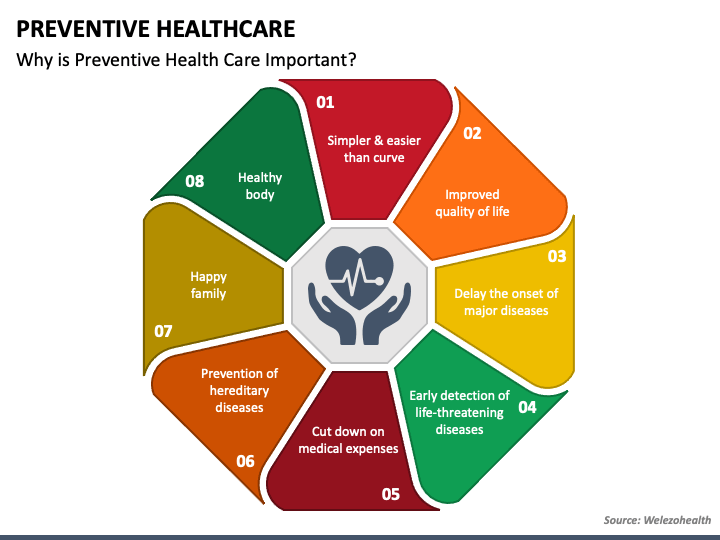Boost Your Immunity: Natural Strategies That Work

Boosting Your Body’s Defenses: A Comprehensive Guide to a Stronger Immune System
In today’s world, maintaining a robust immune system is more crucial than ever. While we often think of immunity as something we’re born with, the truth is it’s a complex system that can be actively strengthened and supported through lifestyle choices. This isn’t about quick fixes or miracle cures; it’s about building a foundation of health that allows your body to defend itself effectively against illness. This post will delve into practical, natural strategies you can implement to fortify your immune system and live a healthier, more resilient life.
Understanding Your Immune System
Before we dive into the “how-to,” let’s briefly understand what we’re dealing with. Your immune system isn’t a single entity; it’s a network of cells, tissues, and organs working together to protect you. It’s broadly divided into two parts: the innate immune system and the adaptive immune system.
The innate immune system is your first line of defense. It’s the rapid response team, providing immediate protection against a wide range of pathogens. This includes physical barriers like skin and mucous membranes, as well as internal defenses like natural killer cells and inflammation.
The adaptive immune system is more sophisticated. It learns and remembers specific pathogens, creating targeted responses for future encounters. This is the basis of immunity gained through vaccination or previous infection. A healthy immune system requires both parts to function optimally.
The Pillars of Immune Support: Lifestyle Factors
Several key lifestyle factors significantly impact immune function. Neglecting these areas can leave you vulnerable to illness.

1. Nutrition: Fueling Your Immune Cells
What you eat directly impacts your immune cells. A diet rich in whole, unprocessed foods is paramount. Focus on:
- Fruits and Vegetables: Packed with vitamins, minerals, and antioxidants that combat free radicals and support immune cell function. Especially important are Vitamin C rich foods like citrus fruits, berries, and bell peppers, and Vitamin A rich foods like sweet potatoes and carrots.
- Protein: Essential for building and repairing tissues, including immune cells. Good sources include lean meats, poultry, fish, beans, and lentils.
- Healthy Fats: Omega-3 fatty acids, found in fatty fish, flaxseeds, and walnuts, have anti-inflammatory properties that can benefit immune function.
- Probiotics & Prebiotics: A healthy gut microbiome is crucial for immunity. Probiotics (found in yogurt, kefir, and fermented foods) introduce beneficial bacteria, while prebiotics (found in garlic, onions, and bananas) feed those bacteria.
Conversely, limit your intake of processed foods, sugary drinks, and excessive alcohol, as these can suppress immune function.
2. Sleep: The Immune System’s Recharge Time
Sleep is not a luxury; it’s a necessity for immune health. During sleep, your body releases cytokines, proteins that help fight inflammation and infection. Chronic sleep deprivation weakens the immune system, making you more susceptible to illness. Aim for 7-9 hours of quality sleep each night. Establish a regular sleep schedule, create a relaxing bedtime routine, and ensure your bedroom is dark, quiet, and cool.
3. Stress Management: Calming the Immune Response
Chronic stress suppresses the immune system. When you’re stressed, your body releases cortisol, a hormone that can interfere with immune cell function. Finding healthy ways to manage stress is vital. Consider:
- Mindfulness and Meditation: These practices can help calm the mind and reduce stress hormones.
- Yoga and Tai Chi: Combine physical activity with mindfulness, promoting relaxation and reducing stress.
- Spending Time in Nature: Exposure to nature has been shown to lower cortisol levels and boost immune function.
- Social Connection: Strong social relationships provide emotional support and buffer against stress.
4. Exercise: Moving Towards Immunity
Regular, moderate exercise can boost immune function. It improves circulation, allowing immune cells to move more efficiently throughout the body. However, overtraining can actually suppress the immune system, so it’s important to find a balance. Aim for at least 30 minutes of moderate-intensity exercise most days of the week. Walking, jogging, swimming, and cycling are all excellent choices.
Specific Nutrients to Support Immunity
Beyond a generally healthy diet, certain nutrients play particularly important roles in immune function:
- Vitamin D: Often called the “sunshine vitamin,” Vitamin D is crucial for immune cell activation. Many people are deficient, especially during winter months. Consider supplementation if you don’t get enough sun exposure.
- Zinc: Essential for immune cell development and function. Found in oysters, beef, pumpkin seeds, and beans.
- Vitamin C: A powerful antioxidant that supports immune cell function and protects against oxidative stress.
- Elderberry: Traditionally used to treat colds and flu, elderberry contains compounds that may help reduce the duration and severity of illness.
- Garlic: Contains allicin, a compound with antiviral and antibacterial properties.
Important Note: Before starting any new supplement regimen, it’s always best to consult with your healthcare provider.
Hydration: Keeping Everything Flowing
Water is essential for all bodily functions, including immune function. It helps flush out toxins, keeps mucous membranes moist (providing a barrier against pathogens), and supports the circulation of immune cells. Aim to drink at least 8 glasses of water per day.
Final Thoughts: A Holistic Approach
Building a stronger immune system isn’t about a single magic bullet. It’s about adopting a holistic lifestyle that prioritizes nutrition, sleep, stress management, and exercise. By making these changes, you’re not just boosting your immune system; you’re investing in your overall health and well-being. Remember to listen to your body, prioritize self-care, and consult with your healthcare provider for personalized advice. A resilient immune system is your best defense against illness, allowing you to live a vibrant and fulfilling life.



